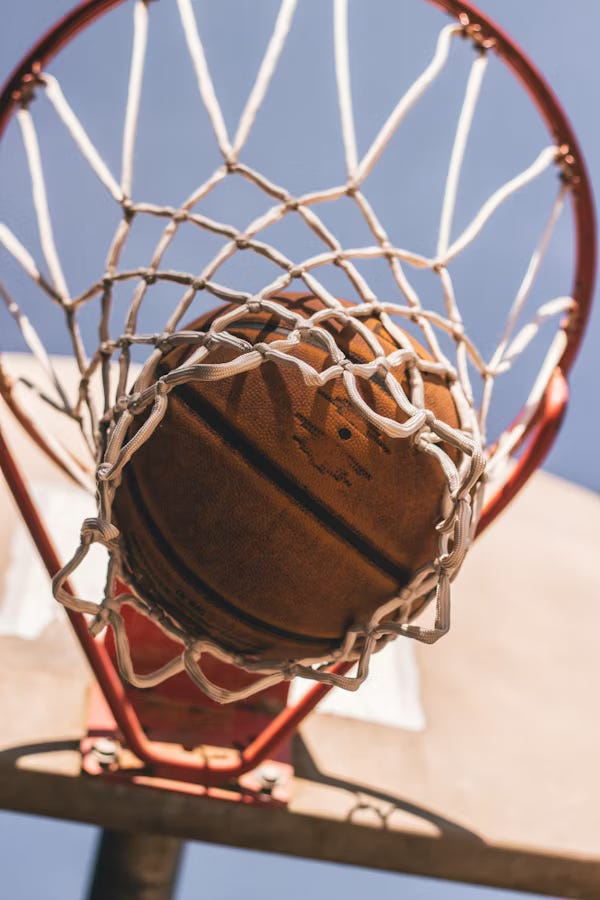The NCAA Will Finally Pay for Play

The easiest column to write (and I’ve written it) is one where you note “the way things ought to be” (also a Rush Limbaugh book title from the 1990s) and then lament that you have discovered they are not, in fact, that way.
After the NCAA announced it will begin paying players, Wall Street Journal columnist Dan Henninger was dismayed to realize that “the days of the ‘amateur’ college athlete are over. In the future, the men and women on Division I teams and others likely will be regarded as professionals who will be paid to play by universities through revenue-sharing agreements up to $20 million a year per school.”
Well, it’s about time.
For decades, the NCAA pretended that its athletes are “students” first. And it pretended they were amateurs. As civil rights crusader Taylor Branch has explained, doing so allowed the NCAA to avoid paying workman’s compensation for the injuries that will inevitably result from playing sports at a high level.
The reason students pay to study civil engineering is because the professors know more than the students do. I wish we lived in a world where 100,000 people would pack into a stadium on a Saturday afternoon to hear a lecture about civil engineering. In that world, our nation’s bridges would be much safer.
But everyone in college sports is getting rich except the players, even though they generate the bulk of the value. Coaches earn millions. Athletic Directors do as well. The schools, the conferences, the NCAA. All are raking in money. The players, who are the reason people watch the games in the first place, haven’t been getting paid.
Henninger admits that everyone knows the schools have been taking advantage of “student-athletes.” But he quickly finds a way to shift the discussion by pretending that paying athletes will be unfair to everyone else. “If your kid wants to go to college to become a civil engineer, the school will take your money,” he writes. “But if she’s there to shoot hoops, the school—with help from tuition-paying parents—will pay her.”
Well, the reason athletes go to big-time college programs is because they are already excellent at playing a sport. They intend to get better, of course. But they bring skill with them. Their skill has value.
The reason students pay to study civil engineering is because the professors know more than the students do. The professors are sharing that knowledge. That knowledge is valuable. And unlike athletic ability it can last a lifetime.
I wish we lived in a world where 100,000 people would pack into a stadium on a Saturday afternoon to hear a lecture about civil engineering. In that world, our nation’s bridges would be much safer. But, in reality, people will pay to watch football, not physics lectures. Students, though, will pay for the lectures and will be better for it. That system of allocating value will keep on working.
“One wonders how schools will continue the practice of making normal students compete for admission with the pros on the sports teams,” Henninger later muses.
Well, the same way colleges have been doing that for decades. Students will need to get in on educational merit (test scores, high school grades) or as a legacy (Dad went there and is willing to endow a new dining hall). Athletes will continue to get in on athletic ability (good jump shot). The fact that they will now be paid to play won’t make a difference to normal students, who still will be paying to learn.
Henninger concludes that parents who pay to send our children to universities “must be feeling like saps.” Not really, since parents have been doing something similar for generations (thanks, Mom and Dad!).
The fact that some point guards will now be paid doesn’t change my calculus on sappiness at all. Although, to be fair, I never studied calculus.
However, my son did. Our family paid to send him to Vanderbilt, and the university produced a generous student aid package. Yes, it was expensive. But he had an incredible experience, double majored in music and math, and is already making the world a better place. He teaches viola and tutors high school students in calc. In the decades ahead, he will have many interesting jobs and do hundreds of other exciting things. He will never regret getting a great education.
Oh, but, Henninger whines, life is just so unfair to parents.
“They play by the rules, pay crushing costs, derive no income from their kids’ names, images or likenesses, and don’t have plaintiffs lawyers ringing them up to file class-action suits against deep-pocketed sports conferences. Want to guess who they’re voting for in November?”
Sigh. Must we find a way to make everything about voting for Donald Trump? Look, I can’t speak for other parents. But I, for one, am voting for Joe Biden.
Yes, he has tried to forgive student loans, and that is a dumb policy. But Trump tried to overturn the result of a free and fair election. He brought a mob to D.C. and unleashed it on lawmakers. He will never accept the result of any election he loses. He shouldn’t even be allowed on the ballot. January 6 should be a disqualifying event.
That said, back to college sports. The NCAA’s tag line used to be that “most of our student-athletes will go pro in something other than sports.” That will remain true even if athletes can go pro while in college and can finally take home some of the value they are generating on the field.
It’s not a perfect world. But paying college athletes is “the way things ought to be.” See? The column wrote itself.


